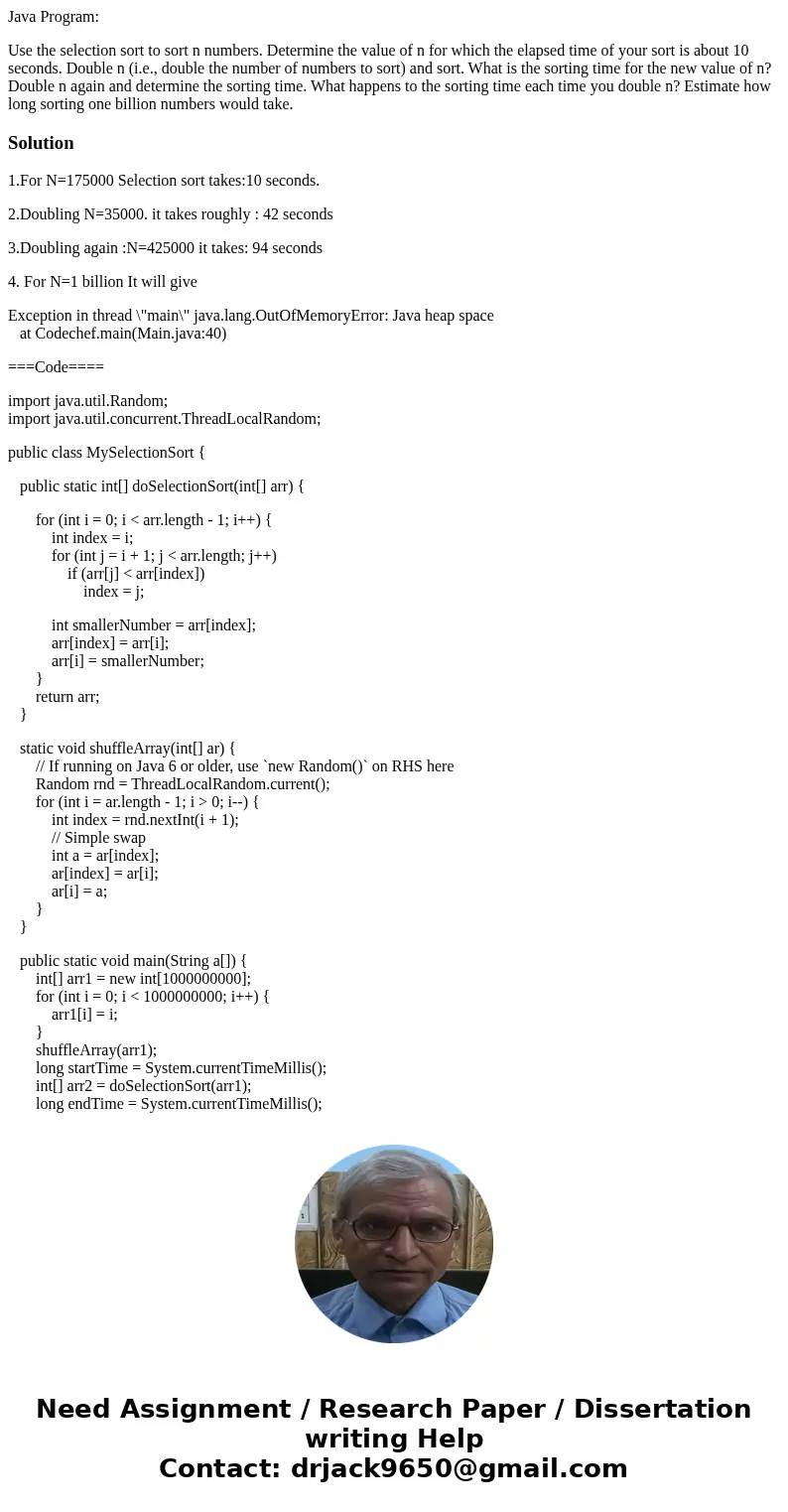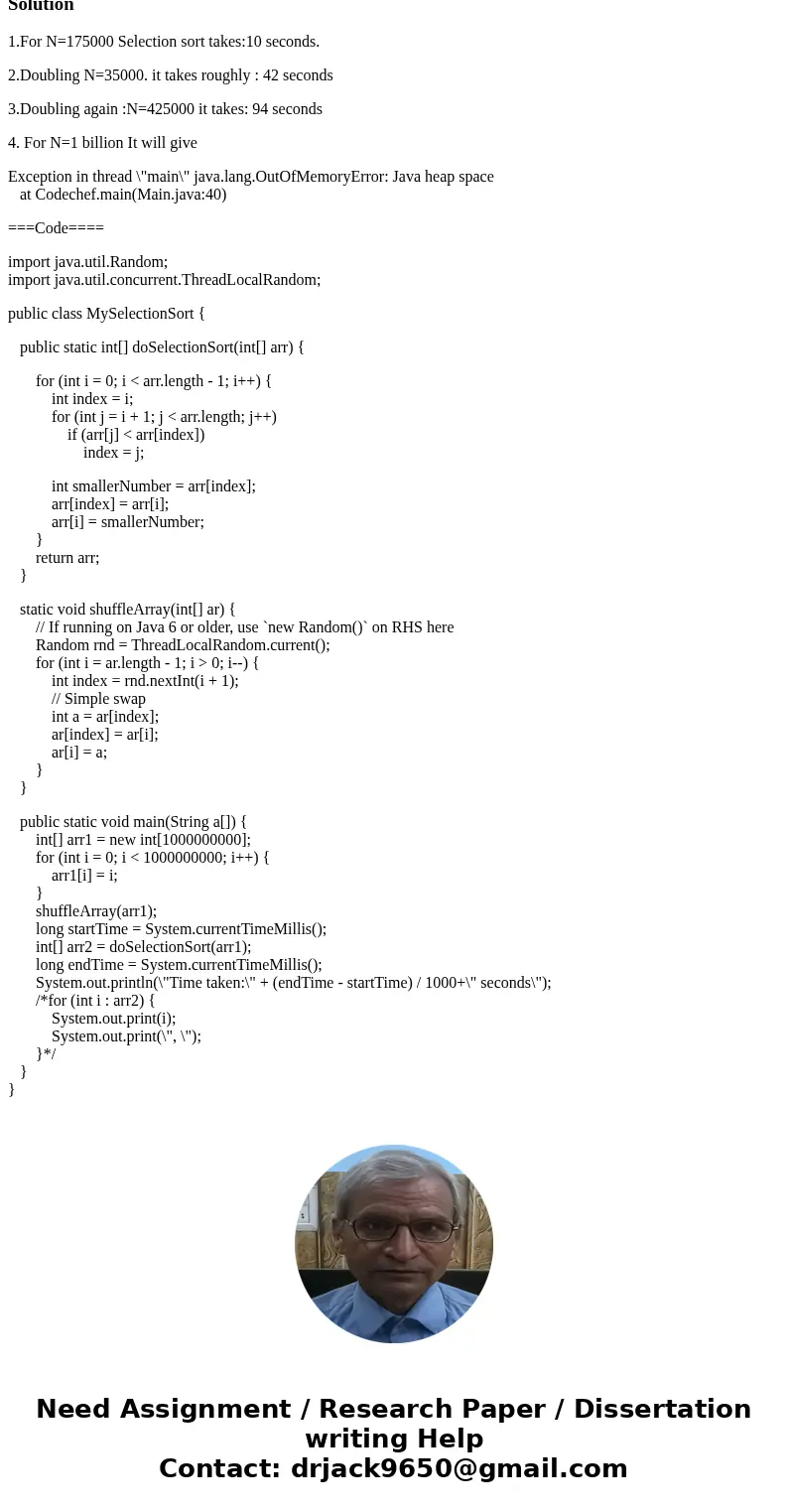Java Program Use the selection sort to sort n numbers Determ
Java Program:
Use the selection sort to sort n numbers. Determine the value of n for which the elapsed time of your sort is about 10 seconds. Double n (i.e., double the number of numbers to sort) and sort. What is the sorting time for the new value of n? Double n again and determine the sorting time. What happens to the sorting time each time you double n? Estimate how long sorting one billion numbers would take.
Solution
1.For N=175000 Selection sort takes:10 seconds.
2.Doubling N=35000. it takes roughly : 42 seconds
3.Doubling again :N=425000 it takes: 94 seconds
4. For N=1 billion It will give
Exception in thread \"main\" java.lang.OutOfMemoryError: Java heap space
at Codechef.main(Main.java:40)
===Code====
import java.util.Random;
import java.util.concurrent.ThreadLocalRandom;
public class MySelectionSort {
public static int[] doSelectionSort(int[] arr) {
for (int i = 0; i < arr.length - 1; i++) {
int index = i;
for (int j = i + 1; j < arr.length; j++)
if (arr[j] < arr[index])
index = j;
int smallerNumber = arr[index];
arr[index] = arr[i];
arr[i] = smallerNumber;
}
return arr;
}
static void shuffleArray(int[] ar) {
// If running on Java 6 or older, use `new Random()` on RHS here
Random rnd = ThreadLocalRandom.current();
for (int i = ar.length - 1; i > 0; i--) {
int index = rnd.nextInt(i + 1);
// Simple swap
int a = ar[index];
ar[index] = ar[i];
ar[i] = a;
}
}
public static void main(String a[]) {
int[] arr1 = new int[1000000000];
for (int i = 0; i < 1000000000; i++) {
arr1[i] = i;
}
shuffleArray(arr1);
long startTime = System.currentTimeMillis();
int[] arr2 = doSelectionSort(arr1);
long endTime = System.currentTimeMillis();
System.out.println(\"Time taken:\" + (endTime - startTime) / 1000+\" seconds\");
/*for (int i : arr2) {
System.out.print(i);
System.out.print(\", \");
}*/
}
}


 Homework Sourse
Homework Sourse